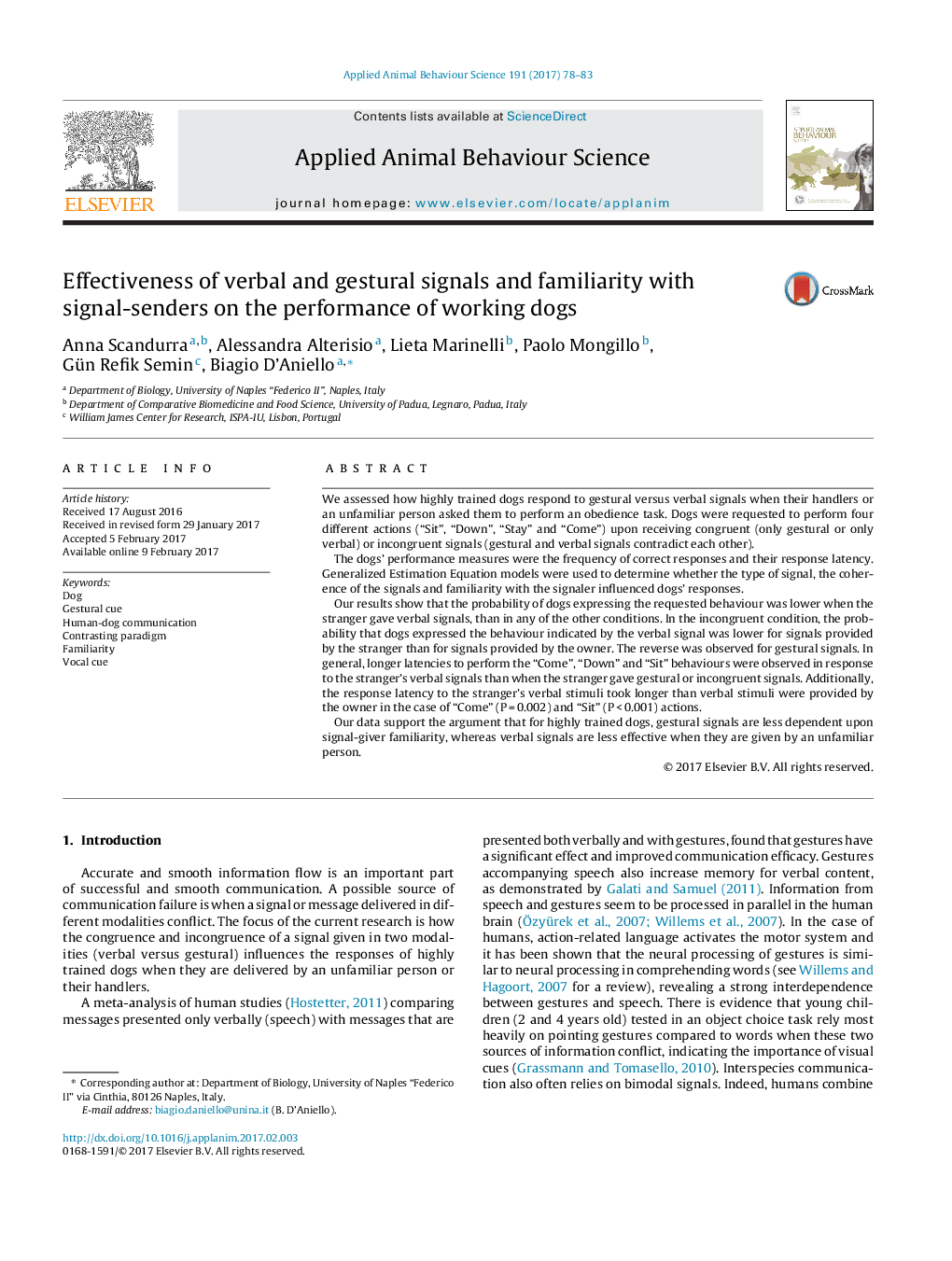| Article ID | Journal | Published Year | Pages | File Type |
|---|---|---|---|---|
| 5763424 | Applied Animal Behaviour Science | 2017 | 6 Pages |
â¢Two senders (owner and stranger) gave gestural and verbal stimuli to 15 dogs.â¢Dogs recruited were able to respond both to gestural and verbal stimuli.â¢Results showed that for dogs the gestural stimuli are independent from the sender.â¢Verbal stimuli was less effective when provided by stranger compared to the owner.
We assessed how highly trained dogs respond to gestural versus verbal signals when their handlers or an unfamiliar person asked them to perform an obedience task. Dogs were requested to perform four different actions (“Sit”, “Down”, “Stay” and “Come”) upon receiving congruent (only gestural or only verbal) or incongruent signals (gestural and verbal signals contradict each other).The dogs' performance measures were the frequency of correct responses and their response latency. Generalized Estimation Equation models were used to determine whether the type of signal, the coherence of the signals and familiarity with the signaler influenced dogs' responses.Our results show that the probability of dogs expressing the requested behaviour was lower when the stranger gave verbal signals, than in any of the other conditions. In the incongruent condition, the probability that dogs expressed the behaviour indicated by the verbal signal was lower for signals provided by the stranger than for signals provided by the owner. The reverse was observed for gestural signals. In general, longer latencies to perform the “Come”, “Down” and “Sit” behaviours were observed in response to the stranger's verbal signals than when the stranger gave gestural or incongruent signals. Additionally, the response latency to the stranger's verbal stimuli took longer than verbal stimuli were provided by the owner in the case of “Come” (PÂ =Â 0.002) and “Sit” (PÂ <Â 0.001) actions.Our data support the argument that for highly trained dogs, gestural signals are less dependent upon signal-giver familiarity, whereas verbal signals are less effective when they are given by an unfamiliar person.
